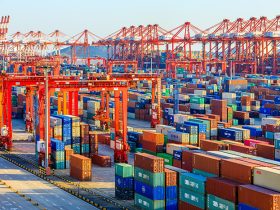
Brokerage companies in Somalia
Brokerage companies play a significant role in facilitating trade and commerce in Somalia, a country that has shown resilience and gradual economic recovery despite years of challenges. These companies act as intermediaries between buyers and sellers, assisting in the transaction of goods, services, or financial assets. The brokerage industry in Somalia spans various sectors, including shipping, real estate, and financial services, contributing to the nation’s economic activities.
Key Types of Brokerage Companies in Somalia
1. Shipping and Logistics Brokers
Somalia’s strategic location along the Indian Ocean makes it a vital hub for maritime trade. Shipping brokerage firms, such as those operating in Mogadishu and Berbera ports, facilitate the import and export of goods. These brokers help streamline customs processes, coordinate cargo shipments, and provide connections to international shipping lines.
2. Real Estate Brokers
The real estate market in Somalia has experienced growth, especially in urban areas like Mogadishu, Hargeisa, and Garowe. Real estate brokerage companies connect buyers and sellers of properties, providing services such as property valuation, negotiation, and legal assistance. They cater to both residential and commercial properties, ensuring smooth transactions in a developing market.
3. Financial and Investment Brokers
Somalia’s banking and financial sector is growing, with a focus on remittances, microfinance, and digital banking. Brokerage firms in this sector assist businesses and individuals in accessing financial products, investment opportunities, and international remittance services. Companies like Dahabshiil and Amal Bank play an instrumental role in connecting Somalia to the global financial network.
4. Commodity and Trade Brokers
Given Somalia’s reliance on agriculture and livestock, commodity brokers play a vital role in facilitating trade in these sectors. Livestock brokers, in particular, manage the export of sheep, goats, and camels to countries in the Gulf region. Similarly, brokers in agriculture assist in the trade of products like sesame, bananas, and fish.
5. Insurance Brokers
Insurance brokerage firms in Somalia are emerging to support businesses and individuals seeking protection against risks. These companies connect clients with insurance providers offering coverage for assets, health, and transportation, helping mitigate risks in an unpredictable environment.
Challenges Facing Brokerage Companies
Regulatory Issues: Somalia’s regulatory framework is still developing, and the absence of robust legal structures can create challenges for brokers.
Security Concerns: Political instability and security issues can impact the operations of brokerage companies, particularly in certain regions.
Limited Infrastructure: Poor road networks and underdeveloped ports may hinder logistics brokers.
Lack of Awareness: Many businesses and individuals may be unfamiliar with the services offered by brokers, limiting their reach.
Opportunities for Growth
Despite challenges, the brokerage sector in Somalia holds significant potential:
Technological Integration: The rise of digital platforms enables brokers to connect with a broader audience and offer online services.
Economic Growth: Somalia’s recovering economy and increasing foreign investment create opportunities for brokers to expand their services.
Diaspora Engagement: Somalia’s diaspora contributes significantly to the economy, and brokers can tap into this market by facilitating investments and transactions.
In conclusion, brokerage companies in Somalia serve as crucial intermediaries in various sectors, contributing to the country’s economic development. While challenges persist, the potential for growth in this sector is vast, driven by technological advancements, increased trade, and investment opportunities. Strengthening regulatory frameworks and infrastructure will further enhance the role of brokerage companies in Somalia’s economy.



Leave a Reply